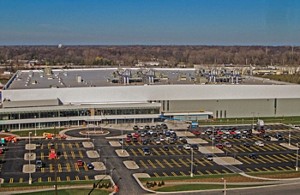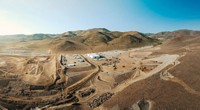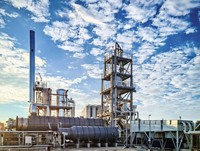Advertisement
Grab your lab coat. Let's get started
Welcome!
Welcome!
Create an account below to get 6 C&EN articles per month, receive newsletters and more - all free.
It seems this is your first time logging in online. Please enter the following information to continue.
As an ACS member you automatically get access to this site. All we need is few more details to create your reading experience.
Not you? Sign in with a different account.
Not you? Sign in with a different account.
ERROR 1
ERROR 1
ERROR 2
ERROR 2
ERROR 2
ERROR 2
ERROR 2
Password and Confirm password must match.
If you have an ACS member number, please enter it here so we can link this account to your membership. (optional)
ERROR 2
ACS values your privacy. By submitting your information, you are gaining access to C&EN and subscribing to our weekly newsletter. We use the information you provide to make your reading experience better, and we will never sell your data to third party members.
Business
Dow Pulls Out Of Dow Kokam Auto Battery Business
Electric Vehicles: Chemical maker sells share of touted facility to investor partner
by Melody M. Bomgardner
December 2, 2013
| A version of this story appeared in
Volume 91, Issue 48

Exiting a business that didn’t live up to its promise, Dow Chemical has sold its majority stake in advanced battery maker Dow Kokam to an affiliate of Townsend Ventures, an investment company that is one of three remaining owners of the battery firm.
The owners launched Dow Kokam in Midland, Mich., home of Dow’s headquarters, to great fanfare; Vice President Joe Biden was on hand for the 2010 manufacturing plant groundbreaking. The facility received $161 million in funding from the Department of Energy and $180 million in tax incentives from the state of Michigan.
The plant, which opened last year, would have employed 320 workers at full capacity and been able to produce lithium-ion batteries to power 30,000 all-electric vehicles. But because of slow demand from vehicle manufacturers, only a fraction of the plant’s capacity was put on-line.
Dow attributes the decision to pull out of Dow Kokam to its drive to improve return on capital investments. Instead of batteries, the company will focus on making battery components such as coated anode and cathode materials. The materials business is one “where our position in the value chain is strategic and margin growth opportunities are clear,” Dow CEO Andrew N. Liveris says.
Townsend says it intends to continue making batteries with remaining partners KA Founders and Dassault. The firm plans to broaden the customer base of Dow Kokam, its name at least for now, by positioning it “as a leader in the emerging large-scale energy storage market.”
Dow Kokam is not the only battery manufacturer to suffer setbacks—Ener1 and A123 Systems filed for bankruptcy after failing to find buyers for their batteries.
“We’ve seen that too many players jumped into the market without knowing who their customers or key partners would be,” says Cosmin Laslau, mobile energy analyst for Lux Research. In contrast, Laslau points out, LG Chem’s plant in Holland, Mich., is successfully supplying batteries for the Chevrolet Volt. And Nissan is operating a battery facility in Smyrna, Tenn., for its all-electric Leaf.




Join the conversation
Contact the reporter
Submit a Letter to the Editor for publication
Engage with us on Twitter